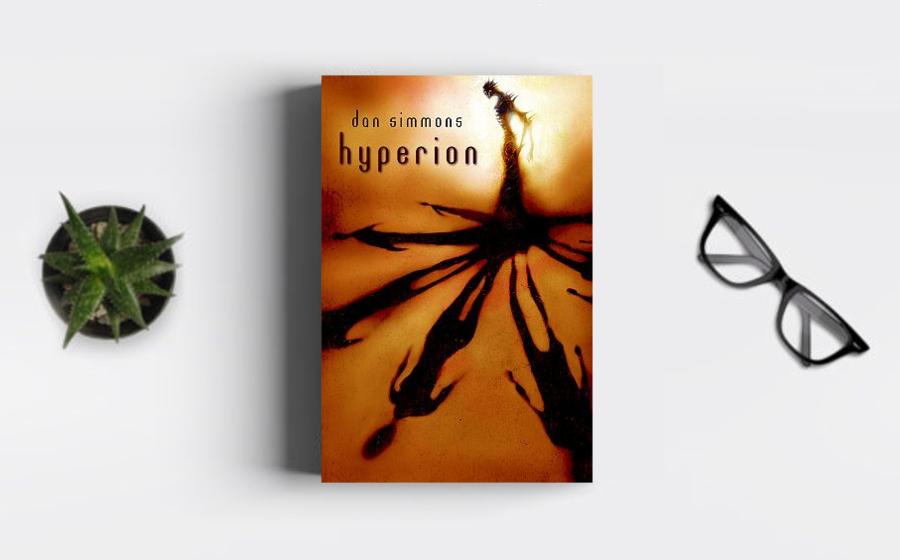In the vast expanse of science fiction literature,
Dan Simmons' "Hyperion" stands as a monumental work that
transcends the boundaries of traditional space opera. As
we navigate the intricacies of this multifaceted
narrative, it becomes evident that "Hyperion" is not
merely a tale of interstellar adventure; it is a rich
tapestry of time, mythology, and the human experience.
This space opera epic rightfully claims its place among
the top books of all time, offering readers a profound
and sweeping journey through the cosmos that challenges
our perceptions of time, destiny, and the enduring power
of storytelling.
At the heart of "Hyperion" is
the pilgrimage of seven individuals known as the
Pilgrims to the distant planet of Hyperion. Each Pilgrim
carries a unique and haunting tale that unfolds against
the backdrop of a far-future universe dominated by
political intrigue, ancient mysteries, and the enigmatic
presence of the Shrike, an enigmatic and fearsome
creature. In the tradition of literary odysseys, the
Pilgrims' journey becomes a thematic focal point, a
narrative device that weaves together elements of
mythology, time travel, and existential contemplation.
Simmons crafts a cosmic odyssey that resonates with
the literary tradition of exploring the archetypal
hero's journey. The Shrike, a mysterious and often
terrifying entity, becomes a symbolic motif that adds
layers of meaning to the narrative, transforming
"Hyperion" into a space opera where the quest for
understanding transcends the boundaries of time and
space.
Simmons displays a mastery of
world-building as he introduces readers to a sprawling
interstellar civilization known as the Hegemony of Man.
In the tradition of literary creations that expand the
boundaries of imagination, the Hegemony becomes a
thematic undercurrent that defines the science fiction
landscape of "Hyperion." The introduction of farcaster
portals, allowing instantaneous travel across
light-years, becomes a speculative element that enriches
the narrative, inviting readers to explore the
intricacies of a universe connected by these cosmic
gateways.
The Hegemony serves as a backdrop for
political intrigue, societal complexities, and the
exploration of human civilization's expansion into the
cosmos. Simmons' detailed and immersive world-building
transforms "Hyperion" into a space opera where the
vastness of the universe becomes a canvas for epic
tales, echoing the grandeur of literary works that
create expansive and intricate fictional realms.
Simmons employs the Cantos, a poetic form, to structure
the novel and infuse it with a sense of timelessness. In
the tradition of literary devices that manipulate time,
the Cantos become a thematic tapestry that weaves
through "Hyperion." The nonlinear narrative structure,
where each Pilgrim recounts their story in a distinctive
style, becomes a narrative device that invites readers
to explore the echoes of the past, present, and future.
The Cantos serve as a vehicle for temporal
exploration, transcending traditional linear
storytelling. Simmons' innovative approach to narrative
structure transforms "Hyperion" into a space opera where
time becomes a fluid and malleable element, echoing the
temporal complexities found in the literary works that
challenge conventional storytelling conventions.
The individual tales of the Pilgrims draw heavily from
mythology, folklore, and cultural symbolism. In the
tradition of literary explorations of cultural
narratives, the Pilgrims' stories become a thematic
undercurrent that defines the science fiction landscape
of "Hyperion." The incorporation of mythological threads
adds depth to the narrative, inviting readers to engage
with timeless archetypes and cultural reflections woven
into the fabric of each tale.
Simmons' use of
mythology transcends mere storytelling; it becomes a
means of exploring universal themes and archetypal
motifs. The Pilgrims' tales transform "Hyperion" into a
space opera that resonates with the literary tradition
of drawing upon cultural narratives to convey profound
truths and insights about the human experience.
The presence of the Shrike, a mysterious and ominous
figure, introduces existential questions that permeate
the narrative. In the tradition of literary explorations
of existential themes, the Shrike becomes a thematic
tapestry that weaves through "Hyperion." The enigma
surrounding the Shrike prompts existential inquiry,
inviting readers to contemplate the nature of destiny,
free will, and the cosmic forces that shape the
universe.
Simmons' treatment of the Shrike adds
layers of complexity to the narrative, transforming
"Hyperion" into a space opera where existential
questions become central themes. Readers are prompted to
engage with profound inquiries about the nature of
existence, the choices that define our paths, and the
cosmic mysteries that transcend human comprehension.
it is evident that Dan Simmons' space opera epic is more than a tale of interstellar adventure; it is a cosmic sonata that harmonizes the concepts of the Shrike, the Pilgrims, world-building mastery, time as a narrative construct, mythological threads, and existential inquiry. In the tradition of literary works that transcend genre conventions.






